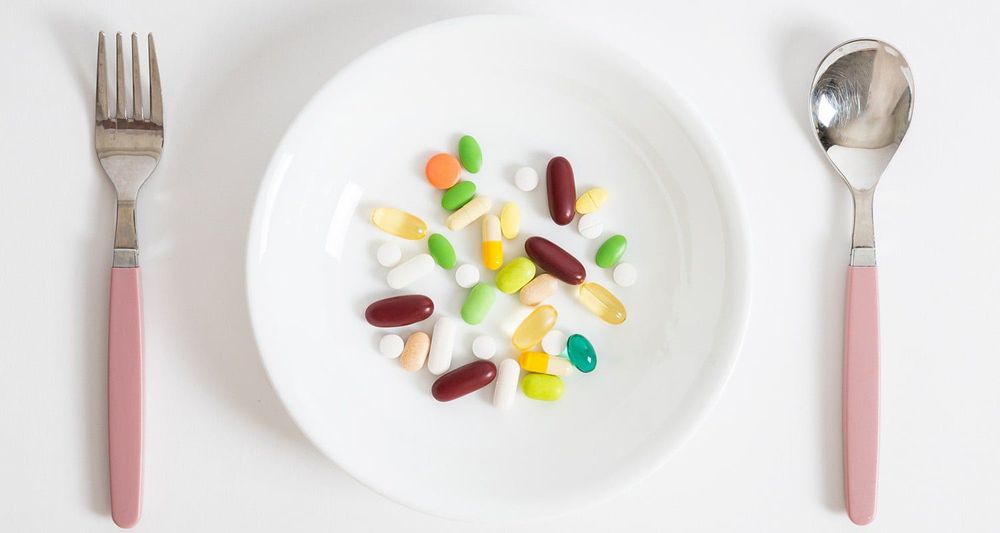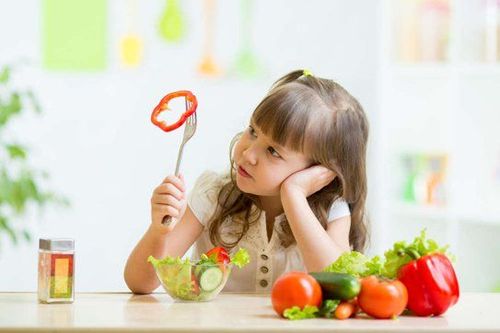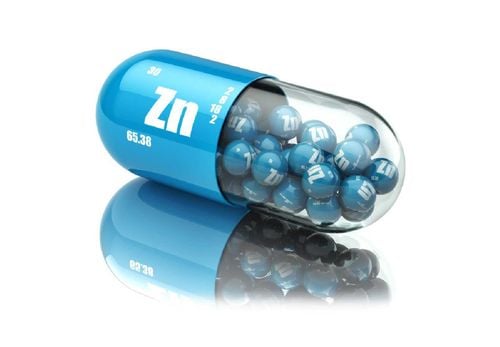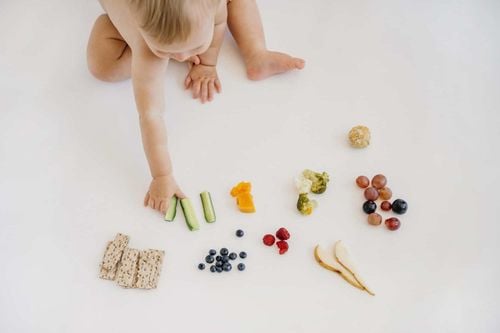This is an automatically translated article.
When children are deficient in zinc, they often have symptoms such as constipation, hair loss, brittle fingernails and toenails, slow healing of wounds, retardation of both physical and intellectual development, decreased sexual function, and ease of use. infection. Therefore, it is extremely important to identify the status of zinc deficiency in children and timely supplement them.
1. What are the symptoms of zinc deficiency in children?
Children with zinc deficiency often have manifestations such as constipation, hair loss, brittle fingernails and toenails, slow healing of wounds, retardation of both physical and intellectual development, decreased sexual function and susceptibility to illness. more infections.
Zinc is a trace mineral, indispensable in the development of the body. Zinc protects the immune system, sex organs and prostate gland. The role of zinc is essential for protein synthesis and collagen formation for all cells, including skin and beauty to stay young for a long time.
Zinc prevents muscle contractions that cause cramps and helps make insulin to prevent diabetes. Zinc plays an important role in keeping the immune system and red blood cells stable. In particular, zinc is essential for the development and maintenance of sexual organs, especially the prostate gland.
Mild to moderate zinc deficiency is quite common in children. It is easy to see some specific manifestations of this condition such as: Children with slow growth, mild and moderate malnutrition, anorexia or eating little, do not eat fish.
When children are deficient in zinc, food will no longer be attractive to children, because this is a mineral that enhances taste. When zinc deficiency, children will easily have digestive disorders, nausea and vomiting, slow digestion, constipation, sleep disorders, lethargy, children wake up many times during the night, cry at night... in addition, children also have may have impaired immune function, leading to susceptibility to recurrent infections in the respiratory tract, dry skin, slow hair growth...

Trẻ thiếu kẽm có thể gặp tình trạng táo bón
2. What is the dose of zinc for children?
Only when the child's zinc deficiency is confirmed through clinical manifestations and biochemical tests, or when the child has damage to the gastrointestinal mucosa that reduces the ability to absorb zinc, then you allowed to supplement zinc for children under the guidance of specialists. The dose of zinc supplement for children is from 0.5-1.5mg of elemental zinc/kg body weight/day.
If you arbitrarily give zinc supplements to children, especially in high doses, leading to an excess of zinc can lead to severe metabolic and growth risks for children no less than the consequences of deficiency. caused by zinc.
3. How long should zinc supplements be given to children?
When you notice that your child has signs of zinc deficiency, you should take the child to a medical facility, or a nutrition center to be examined by specialists, assess the condition, diagnose the cause, and then give directions. guide to appropriate treatment.
After examining and evaluating the situation, the doctor will decide whether to supplement zinc for children or not, if so, how much to take as well as how long to take. The duration of zinc supplementation for children can last from 2 to 3 months, depending on the actual condition of the child.
In case the child is having diarrhea, zinc supplementation during treatment is absolutely necessary. In the treatment regimen for diarrhea for children under 6 months old, it is recommended to supplement with 10mg of zinc/day and for children aged 6-60 months, it is recommended to supplement with 20mg of zinc/day. The duration of zinc supplementation for children in this case is 14 consecutive days.
When supplementing with zinc for children, you also need to note:
Should give children zinc supplements 30 minutes after eating. Do not take zinc and iron tablets at the same time, so give them at least 2 hours apart. Do not take zinc and calcium at the same time, but should take zinc at least 2 hours before calcium. To optimize the absorption of zinc, along with zinc supplementation, in your child's nutritional menu, you should add foods rich in vitamin C, and reduce foods rich in fiber, copper, and iron. .

Trẻ em thiếu kẽm cần được bổ sung theo liều lượng chỉ dẫn của bác sĩ
4. Nutrition for children with zinc deficiency
When zinc deficiency has not been examined, it is possible to supplement zinc for children through food. Foods rich in zinc can be mentioned as meat, liver, fish, shrimp, eggs, milk, amaranth, beetroot and dark green, dark red, dark yellow vegetables.
In order not to have a zinc deficiency, you should give your child a variety of foods, especially foods of animal origin. Plant-based foods often contain lower levels of zinc with low biological value, so the ability to absorb zinc from this food source is not much.
Particularly for babies under 6 months of age, the best and most easily absorbed source of zinc is breast milk. Breastfeeding mothers need to increase zinc supplements to ensure that they are providing their babies with adequate zinc through breast milk.
The addition of necessary micronutrients by children: Zinc, selenium, chromium, vitamins B1 and B6, Ginger, acerola fruit extract (vitamin C), ... will help improve taste, eat well, achieve The height and weight are right and beyond the standard, the immune system is good, and the resistance is enhanced so that there are less minor illnesses and less digestive problems.
For more nutritional knowledge and child care for each age, parents should regularly visit the website vimec.com and make an appointment with the leading doctors, pediatric and nutrition experts of the National General Hospital. Vinmec when needing advice on children's health.
Reference source: smallseotools.com













